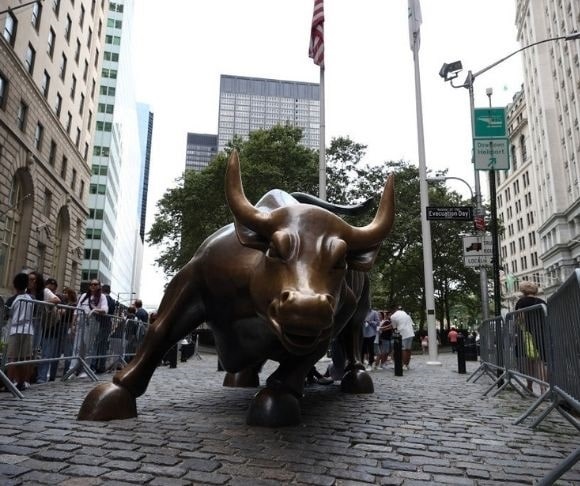If you ain’t sustainable, you ain’t gettin’ capital. This might seem like a country or rap song for Wall Street firms and investors – depending on the accent – but it is certainly an appropriate explanation of today’s financial markets. The latest phenomenon hitting the international economy is the environment, social, and governance (ESG) movement, also known as sustainable investing. If you are opening up a can of Campbell’s for dinner this evening, you should prepare to find the letters ESG and get ready to digest the next big grift.
Getting to Know ESG
In the last decade, there has been a push to support and invest in companies that embrace a socially conscious approach to running their organizations, whether it is being more internally diverse or aiming to reduce the corporation’s carbon footprint. It is an ambitious crusade that has been plagued with issues, from ignorance to the dereliction of these initial objectives of sustainable investing.
Retail investors might be hopping on the ESG bandwagon, but they ostensibly know very little about this new investment trend, according to a new study conducted by FINRA Investor Education Foundation and NORC of the University of Chicago. The report found that fewer than one-quarter (24%) could correctly define ESG investing, and a little more than a fifth (21%) knew what the letters stood for. Interestingly enough, a quarter thought ESG meant “earnings, stock, growth.”
All types of investors have been pouring into ESG over the last few years, from institutional groups to armchair traders. In 2021, Morningstar reported that investors put $51 billion in net new funds into ESG open-ended and exchange-traded funds (ETFs). This represented the fifth straight annual record. Global ESG investing is projected to accelerate to $53 trillion by 2025, according to Bloomberg Economics.
Indeed, this is all well and good on the surface. However, once you start digging, you will uncover fraud, grift, and rapacity. As the famous saying goes, “A sucker is born every minute,” and the ground floor of ESG investing is filled with well-intended folks.
Greenwashing
In 2019, after leaving BlackRock, one of the world’s largest asset management companies, Tariq Fancy went scorched-earth on this corner of the market. Fancy told the business press that ESG is only about enriching Wall Street instead of fulfilling the goals of green-friendly and socially conscious investors and groups.
One of the biggest black eyes to the industry? Greenwashing. This term describes efforts by businesses marketing themselves as being green-focused without taking any significant steps to improve their impacts on Mother Nature. Or, as the Financial Conduct Authority (FCA) wrote, “marketing that portrays an organisation’s products, activities or policies as producing positive environmental outcomes when this is not the case.”

(Photo by Jason Wise/Getty Images for Green New Deal Network)
Last year, a Schroders Institutional Investor Study discovered that nearly two-thirds of professional investors identified greenwashing as a notable difficulty when selecting sustainable investments. In addition, an April Harris Poll survey for Google Cloud found that 58% of companies admitted to committing greenwashing. In the United States, that figure climbed to 68%. Moreover, two-thirds of C-suite leaders worldwide wondered if their firms’ sustainability initiatives were authentic.
These kinds of concerns prompted the European Securities and Markets Authority (ESMA) to nudge the sector to establish ESG standards and install tags on all sorts of investment products. With ESG going mainstream, third-party rating agencies are popping up to eradicate doubt and minimize skepticism regarding an entity’s sustainability endeavors. MSCI, S&P, and Sustainalytics are just some of the ESG rating outfits attempting to expose greenwashing. But is this enough?
Paul Clements-Hunt, the founder of the advisory firm The Blended Capital Group, told Bloomberg that ESG fund managers and investors have “failed.”
All About the E, Nothing About S & G

(Photo by Scott Olson/Getty Images)
But the ESG industry has other hurdles raising a few eyebrows. Indeed, all the focus has been on the environmental component of ESG, but analysts at CIBC Capital Markets contend that the investment community has abandoned or forgotten about the social and governance aspects of this strategy.
In a note to clients in February, the bank’s analysts averred that ESG investors poured into Tesla Motors. This may have been for its environmental purpose, but “the company certainly leaves room for improvement on both governance and social issues.” The same report also spotlighted that ESG funds “owned twice as much Russian oil and gas as Canadian oil and gas at the end of last year.” So, for example, many investments with international global holdings had parked their cash into Russia’s Gazprom and Novateka, doubling that of Canada’s Suncor Energy and Enbridge. The analysts wrote:
“Clearly, the concept of aligning investments with the values and ethics of responsible corporate citizens was significantly outweighed by simple, backward-looking carbon metrics. Russia and Saudi Arabia may well emit less CO2 per produced barrel of oil equivalent than some North American firms, but they also invariably have less robust social and governance oversight. To be blunt, the importance of Social and Governance within Energy should not be looked over.”
The widespread consternation about these types of developments led to UBS and JPMorgan Chase recommending better disclosure of companies’ ESG standards, particularly in markets like China.
Fossil Fuels vs. ESG
ESG investing is big business, and the sector is poised for dramatic gains in the coming years. For now, however, the returns are failing to mirror that of fossil fuel stocks, ETFs, and mutual funds. They are falling short of the more conventional energy vehicles. The largest ESG fund is the Morgan Stanley Institutional Fund, Inc. Global Opportunity Portfolio Class A (MGGPX), but it has slumped more than 20% so far this year. The Vanguard Energy Index Fund (VDE), which has positions in Exxon, Chevron, and Kinder Morgan, has rallied about 40% year-to-date. ESGs will have their day again as the finance sector retools and reshapes these sustainable trading endeavors. For now, crude oil, natural gas, and coal are the royalty of Wall Street.




